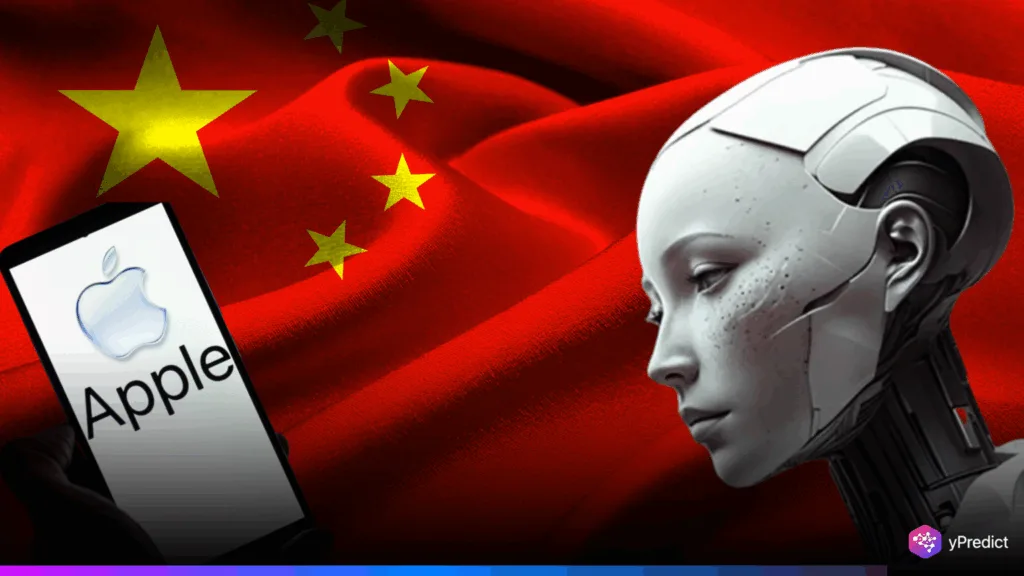
Apple has been keen on reviving its market hopes in the large market that is China. To achieve the same, it recently announced a partnership with Chinese tech giant Alibaba to power iPhone AI features. This development has sparked debates and discussions in Washington DC, highlighting the delicate state of U.S.-China affairs.
Apple AI and Alibaba AI Join Forces Amid Market Pressures
iPhone sales have declined in China lately. Given this decline, the company is now partnering with Alibaba AI to deliver new user-centric AI features for Chinese iPhone users. This effort from Apple comes in a bid to re-establish itself as a competitor in China. As of now, Huawei and Xiaomi are leading the Chinese tech industry. They have already surged ahead with their own advanced AI capabilities and massive consumer bases. Apple lacks local AI features, which has turned out to be a weakness. CEO Tim Cook attributed this drop in sales in China to the lack of an indigenous “Apple Intelligence”.
Alibaba AI’s Qwen 2.5 model has been making waves in the tech industry. It has recently outperformed its competitors in several benchmark tests. Its performance has been a key factor in Apple’s decision. After considering several other Chinese AI options, Apple chose Alibaba for its technical soundness and regulatory compliance. “They want to use our AI to power their phones,” Alibaba Chairman Joe Tsai stated, confirming the deal and underscoring its significance for both companies.
China’s Regulatory Hurdles and Apple’s Need for Local Partners
The strict AI regulation in China usually causes issues for foreign tech firms like Apple. So, these companies seek approved local companies to provide AI services. Their policy focuses on national security and data concerns, which left Apple with little choice. Consequently, Apple had to find a Chinese partner or risk losing its footing in the market.
By providing AI services on iPhones through Alibaba, Apple will face fewer regulatory problems. The company also plans to provide features like voice recognition and personalized recommendations. It is worth noting that Alibaba also stands to gain massively from this partnership, making the Apple-Alibaba collaboration fruitful for both.
Washington Questions Apple-Alibaba Deal: Fears Over Data, Security, and Relations
The Apple-Alibaba collaboration has sparked several debates in Washington. U.S. officials have expressed concerns that this deal could boost China’s AI capabilities and expose American technology to them. Further, officials argue that this deal could set a pattern where American companies rely on Chinese companies to tap into their markets. There are also concerns about data sharing and compliance with Chinese censorship and surveillance laws, raising questions about user privacy and the future of AI regulation.
The Congress has also sought details from Apple. Questions about the company’s ability to safeguard user data and resist the strict regulatory demands of China have been raised. Some officials fear that this agreement could even help China’s military by allowing it access to advanced AI tools. Discussions are currently underway about restricting business with Chinese firms like Alibaba.
Apple’s Dilemma: Market Survival vs. Geopolitical Risk
For Apple, China remains its second-largest market. It accounts for nearly 20% of global revenue. Abandoning the Alibaba collaboration could further weaken Apple’s value and market dominance. If they move forward, though, they will be subject to more criticism from the U.S.. As Apple navigates this sensitive situation, the tech world waits to see whether tech innovation can survive the nuances of geopolitics and AI regulation.





